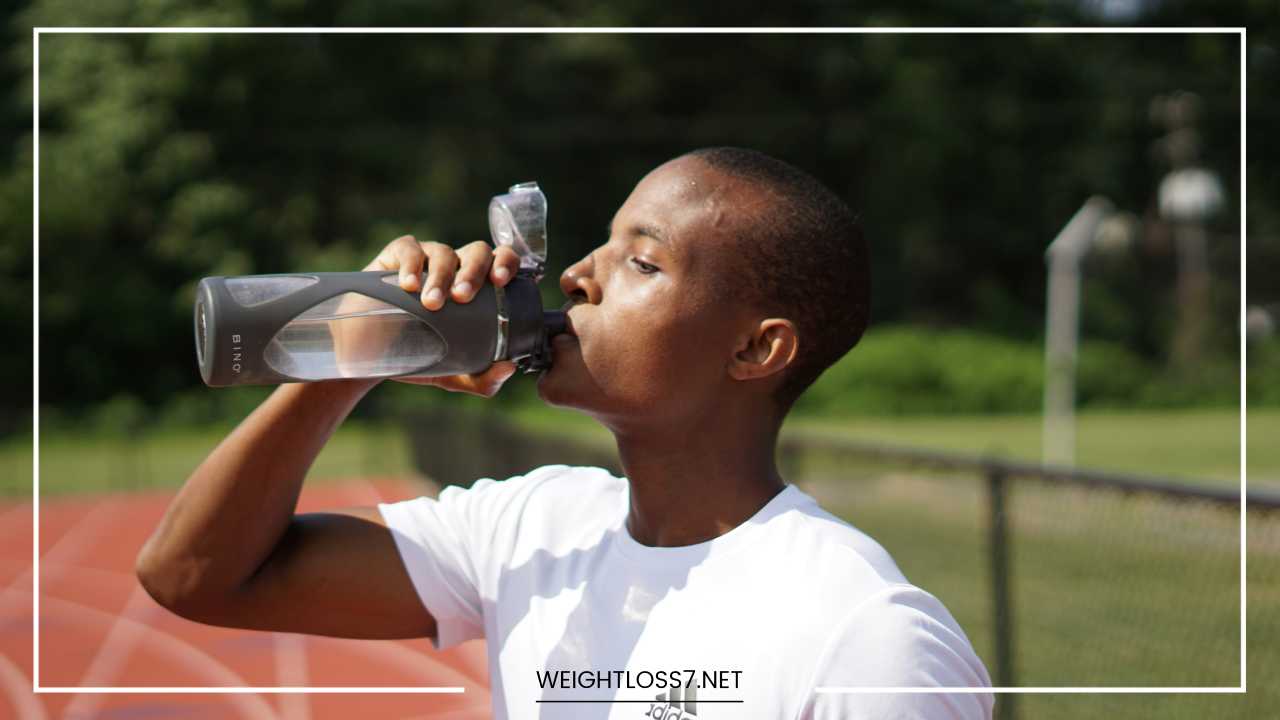How Much Water Should You Drink a Day

Water Intake
Debunking the 8 Glasses Myth: How Much Water Should You Really Drink Each Day?
We’ve all heard it a million times: “Drink eight glasses of water a day!” But is this one-size-fits-all approach truly the best way to stay hydrated? The answer, like most things in health, is a resounding no.
While water is essential for our survival, individual needs can vary greatly. This blog post dives deep into the factors that influence how much water you should drink and provides practical tips to ensure you’re staying adequately hydrated.
Why Water Matters: The Powerhouse of Life
Water is the most abundant compound in our bodies, making up around 60% of our body weight. It plays a critical role in nearly every bodily function, from regulating body temperature to lubricating joints, transporting nutrients, and flushing out toxins.
Dehydration, even mild, can have a significant impact on our health. It can lead to headaches, fatigue, constipation, difficulty concentrating, and even impair our physical performance.
Chronically low water intake has also been linked to more serious health problems like kidney stones and urinary tract infections.
Beyond the Eight Glasses: Individualized Hydration Needs
The oft-repeated advice to drink eight glasses of water a day (or two liters) originated from a flawed 1945 study that didn’t actually focus on water intake. This one-size-fits-all approach fails to consider several factors that influence our daily fluid needs:
- Body size: Larger individuals naturally require more water than their smaller counterparts. Think of it like filling a swimming pool versus a bathtub – they both need water, but in vastly different quantities.
- Activity level: Physical activity leads to increased sweating, which means you need to replace those lost fluids. The more intense or prolonged your workouts, the more water you’ll need to consume.
- Climate: Hot and humid environments cause us to sweat more, necessitating increased water intake. Conversely, colder climates may require slightly less water.
- Diet: We get some of our daily fluid intake from the foods we eat. Fruits and vegetables, for example, have a high water content.
So, how much water should you drink?
The National Academies of Sciences, Engineering, and Medicine recommends a daily fluid intake of:
- About 15.5 cups (3.7 liters) for men
- About 11.5 cups (2.7 liters) for women
However, these are just general guidelines. Here’s how to personalize your water intake based on your individual needs:
Listen to your thirst: This is your body’s natural way of telling you it needs hydration. Don’t wait until you’re parched to reach for a glass of water.
Monitor your urine color: Pale yellow urine indicates good hydration. Darker urine suggests dehydration.
Consider your activity level: If you exercise regularly, factor in additional water intake before, during, and after your workouts. A good rule of thumb is to drink half a cup to two cups of water every 15-20 minutes during exercise.
Adjust for climate: During hot weather or when spending time outdoors, increase your water intake to compensate for sweat loss.
Pay attention to medical conditions: Certain medical conditions, like pregnancy, breastfeeding, or kidney disease, may require adjustments to your fluid intake. Consult your doctor for personalized advice.
Beyond Water: Hydration Helpers
While water is the gold standard for hydration, other beverages and foods can also contribute to your daily fluid needs. Here’s what counts:
- Unsweetened teas and herbal teas: These offer a flavorful way to stay hydrated, minus the added sugar found in many drinks.
- Low-fat milk: Milk provides essential nutrients like calcium and vitamin D, along with fluids.
- Fruits and vegetables: Many fruits and vegetables, like watermelon, cucumber, and celery, have a high water content. Think of incorporating these into your meals and snacks throughout the day for a refreshing and hydrating boost.
Beware of dehydrating drinks: While some beverages may quench your thirst temporarily, they can actually contribute to dehydration in the long run. Here are some to limit:
- Sugary drinks: Sodas, sports drinks (unless you’re engaged in intense exercise), and sugary juices can cause blood sugar spikes and lead to increased urination, dehydrating you further. Opt for water or unsweetened alternatives whenever possible.
- Alcohol: Alcohol is a diuretic, meaning it increases urine production and can lead to dehydration. Be mindful of your alcohol consumption and ensure you’re rehydrating adequately, especially after a night out.
- Caffeinated beverages: Coffee and tea, while fluids, can have a diuretic effect for some people. Pay attention to how you feel after consuming them and adjust your water intake accordingly. If you find yourself needing to use the restroom frequently after a cup of coffee, balance it out with a glass of water.
Making Water a Habit: Simple Strategies for Daily Hydration
Building a consistent hydration routine takes effort, but the benefits are well worth it. Here are some practical tips to help you integrate water into your daily life:
- Invest in a reusable water bottle: Having a visually appealing and convenient water bottle by your side can serve as a constant reminder to sip throughout the day. Choose a bottle that holds enough water to meet your needs and that you find easy to carry and clean.
- Infuse your water with flavor: Plain water can sometimes feel bland. Infusing it with fruits, vegetables, or herbs can add a touch of natural sweetness and variety. Try slices of cucumber, lemon, or berries for a refreshing twist.
- Set reminders: In our busy lives, it’s easy to forget to drink water. Utilize phone alarms or hydration apps to send you gentle reminders to take a sip throughout the day.
- Pair water with meals and snacks: Make water your go-to beverage with every meal and snack. This not only keeps you hydrated but can also help with portion control and digestion.
- Start your day with water: Drinking a glass of water first thing in the morning can rehydrate you after a night’s sleep and kickstart your metabolism.
- Freeze some water bottles: Popping a frozen water bottle in your lunch bag ensures you’ll have refreshing cold water throughout the day, even as it melts.
- Make it a game: Challenge yourself or your family to a water-drinking competition. Track your intake and set daily or weekly goals to stay motivated.
The Science Behind Hydration: How Water Impacts Your Body
Drinking enough water goes beyond simply quenching thirst. Here’s a deeper look at the scientific evidence highlighting the importance of hydration for various aspects of our health:
- Cognitive function: Studies have shown that dehydration can negatively impact cognitive performance, memory, and concentration. Adequate hydration keeps your brain sharp and focused.
- Physical performance: Water is essential for regulating body temperature and transporting nutrients to your muscles. Proper hydration can improve endurance, prevent cramps, and enhance overall athletic performance.
- Weight management: Water can help you feel full and reduce calorie intake. Drinking water before meals may curb your appetite and aid in weight management efforts.
- Skin health: Dehydration can lead to dry, flaky skin. Drinking plenty of water helps keep your skin plump, hydrated, and glowing.
- Digestive health: Water plays a crucial role in digestion and helps prevent constipation. Staying hydrated keeps your digestive system functioning smoothly.
- Nutrient absorption: Water is essential for the absorption of essential vitamins and minerals from your food.
The Bottom Line: Listen to Your Body and Hydrate Wisely
While there’s no single answer to how much water you should drink daily, understanding the factors that influence your individual needs is key.
By listening to your body’s thirst cues, monitoring your urine color, and considering your activity level and climate, you can personalize your hydration strategy.
Remember, water is the cornerstone of good health. Making water your beverage of choice and incorporating these simple tips can ensure you’re adequately hydrated and functioning at your optimal level.
If you have any concerns about your hydration needs or experience persistent symptoms of dehydration, consult your doctor for personalized advice.
The Deeper Dive: Unveiling the Dehydration Cascade
While we’ve established the importance of hydration, understanding the consequences of dehydration can further motivate us to prioritize water intake.
Dehydration isn’t an on/off switch; it occurs on a spectrum. Here’s a glimpse into the physiological cascade that unfolds as your body becomes progressively dehydrated:
-
Mild Dehydration (1-3% body weight loss): This is the initial stage, often characterized by subtle signs like thirst, dry mouth, and slight fatigue. You might experience headaches or difficulty concentrating. At this point, simply increasing water intake can reverse these symptoms.
-
Moderate Dehydration (4-6% body weight loss): As dehydration worsens, symptoms become more pronounced. You might experience dizziness, muscle cramps, and decreased urine output. Urine color darkens, and mood swings or irritability can occur. Cognitive function diminishes, impacting memory and focus.
-
Severe Dehydration (7% or more body weight loss): This is a medical emergency requiring immediate intervention. Symptoms include rapid heartbeat, rapid breathing, confusion, and even seizures. In extreme cases, dehydration can lead to heat stroke, coma, and even death.
Don’t Let Dehydration Hinder You: Potential Health Risks
Chronic dehydration, even if not reaching severe levels, can pose various health risks:
- Kidney Stones: Concentrated urine due to dehydration can increase the risk of developing kidney stones, which are painful mineral deposits that form in the kidneys.
- Urinary Tract Infections (UTIs): Dehydration can make you more susceptible to UTIs, as it allows bacteria to linger in the urinary tract.
- Constipation: Water plays a crucial role in softening stool and ensuring smooth passage through the digestive system. Dehydration can lead to constipation and difficulty with bowel movements.
- Impaired Skin Health: Dehydrated skin loses its elasticity and becomes more prone to wrinkles, dryness, and flakiness.
Beyond the Tap: A Look at Different Water Sources
Water is a precious resource, and the source you choose matters. Here’s a breakdown of common water options:
- Tap Water: Municipal tap water is often treated and safe to drink in many developed countries. However, some people may prefer a different taste or may have concerns about potential contaminants. In such cases, using a home filtration system can be an option.
- Filtered Water: Home filtration systems remove impurities like chlorine or lead from tap water. While generally safe, the effectiveness of filtration systems can vary.
- Bottled Water: Bottled water offers convenience and portability, but it comes with an environmental cost due to plastic waste. Additionally, bottled water isn’t necessarily safer or healthier than filtered tap water.
Sparkling Up Your Hydration: Creative Infused Water Recipes
Plain water can sometimes feel monotonous. Here are some refreshing and healthy infused water recipes to keep your taste buds happy:
- Citrus Splash: Combine slices of lemon, lime, or grapefruit with a sprig of mint for a light and invigorating drink.
- Berry Bliss: Muddle a handful of berries like strawberries, raspberries, or blueberries with water for a touch of sweetness and antioxidants.
- Cucumber Cooler: Add sliced cucumber to your water for a refreshing and subtly sweet flavor.
- Tropical Twist: Infuse water with slices of pineapple, mango, or kiwi for a taste of the tropics. Experiment with different combinations to discover your favorite flavors.
Debunking the Myths: Separating Fact from Fiction
There are many misconceptions surrounding water consumption. Here are some common myths debunked:
- Myth: Eight glasses of water a day is the golden rule for everyone.
- Fact: Water needs vary based on individual factors.
- Myth: Drinking coffee or tea dehydrates you.
- Fact: While these beverages have a mild diuretic effect for some people, they still contribute to fluid intake. However, it’s wise to balance them with plain water.
- Myth: You only need to drink water when you’re thirsty.
- Fact: Thirst is a sign of dehydration, so ideally, you should drink water consistently throughout the day to prevent it from setting in.
Final Word: Making Water Your Ally in a Healthy Lifestyle
We’ve explored the science behind hydration, addressed common concerns, and provided practical tips to integrate water into your daily routine.
By making water your beverage of choice and prioritizing consistent hydration, you’re investing in your overall well-being.
Here are some final takeaways:
- Hydration is a lifelong journey: There’s no finish line when it comes to staying hydrated. Make water a constant companion throughout your day, every day.
- Listen to your body’s unique needs: While general guidelines exist, personalize your water intake based on your activity level, climate, and overall health.
- Small changes can make a big difference: Start by incorporating a few of the tips mentioned above. Gradually building healthy hydration habits will lead to long-term benefits.
- Water is a natural performance enhancer: Whether you’re a fitness enthusiast or simply navigating a busy day, staying hydrated ensures you’re operating at your peak.
- Hydration is a beautiful thing: Water nourishes your body from the inside out, promoting healthy skin, improved cognitive function, and a sense of well-being.
Remember, water is essential, affordable, and readily available. Make it your go-to drink and reap the numerous benefits of staying adequately hydrated.

















